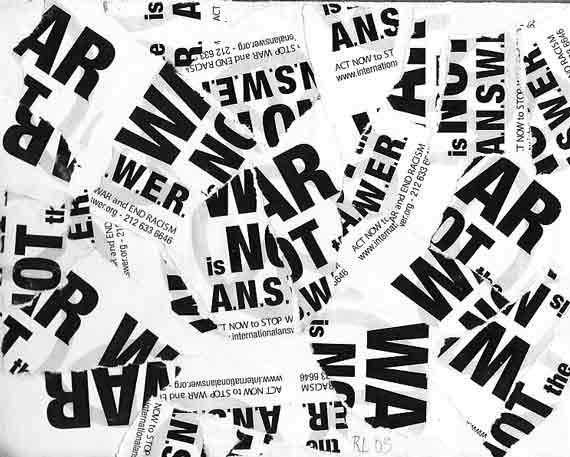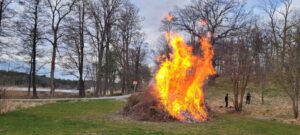Today I received an email from a poet who was involved in the Cordite Poetry Review Search issue asking me about the methodology we employed in the exercise.
For those with long memories, the Search issue came out in January 2004, however the experiment itself was originally enacted on the Poetry Espresso mailing list as part of its poem of the day series back in 2002.
So I started digging through the PE archives and I eventually found my original call for poems, posted to the list but written while I was in Buffalo, USA:
hello espressos and greetings from buffalo new york! i realise i have been absent for a while on the list, but i have been reading avidly, though with some initial confusion, posts on the origins of the captain, and his name. ahem. onto duller affairs. i have also just realised i’m supposed to be editing november poems, which begin in about three weeks. may this message constitute a call to arms, in the form of an invitation to submit “search poems” for the month of november, at your earliest convenience.
though it may not be a strictly new genre, search poetry consists, in this instance, of thinking of a title for a poem, typing that title into google or any other search engine, and then creating a poem from the results. your poem may be a strict re-writing of the search results themselves (including hyperlinks), an investigation of the sites brought up by the search query, or an altogether different piece, only connected to the search query itself by the flimsiest of associations.
for example, i recently typed “flat out on a highway lined with dim stars” into google, and came up with a whole series of snippets from texts that, when put together, read like a road trip movie. the possibilities are endless. all i ask is that you follow the above instructions with regards typing the title into a search engine. using an obscure or weird search engine may enhance your credibility.
of course, the idea may prove controversial or, worse, banal. in any case, should i not receive enough poems to fill 30 days, i hope to initiate discussions of the worth of search poetry as a genre throughout the month. please consider it a bit of fun, and let your fingers do the talking.
In response to my call for poems, I received approximately thirty submissions, all of which made it into the Cordite issue just over 12 months later.
You can read Cassie’s introduction to the issue, and then scroll through the poems at your leisure. Some of them are quite funny, especially Carlie Lazar’s A Prank Call To John Howard and (lay-down Misere, best search poem ever) Why Trains Crash.
The cover image for the issue was provided by Ruark Lewis. Adam Ford also wrote an article on search poems in response to the issue. The project also inspired some discussion on the list, although the Poetry Espresso archives are no longer online, unfortunately.

The methodology I employed prior to the Poetry Espresso and Cordite search poem projects was far more strict. I thought of a title for a poem, typed it into Google and hit “Search”. I then selected the text from the first page of results, dumped it into a text editor and stripped it of URLs and hyperlinked text. This left me with a blob of text of a certain length which I preserved as it was, that is without edits. I also preserved the Google-specific final words “Cached – Similar pages”, as a kind of signature.
In general, I found that the more entertaining and interesting the title, the funnier the results. Here’s a few I prepared earlier: punk rock uses stolen metaphors, Ninja prover – herje med Javascript and my personal favourite,
hootie, i’m gonna switch you off. If you like these, you can peruse a few more.
All pretty silly and fun, really. Of course, there are now (and probably were previously) various other Google poem generators plus other even more fiendishly clever and sophisticated versions of what I did. I suggest you, erm, Google the term “Google Poetry” and prepare to die.
As far as I’m concerned, debates about generated poems and Flarf and hyper-avant methodologies and so on are fairly academic, if not the preserve of lang-po geeks, and should be ignored by us mere mortals.
However, I do think there is a place for a sensible critique of search poetry in terms of concepts such as “ownership”, “randomness” and “copying”.
I also found it interesting that most contributors to the Search issue used Google, although Jill Jones’ two contributions used two different search engines to create poems with (almost) identical titles – well worth a look.
A few years ago I gave a guest lecture on search poems in Autofictions, the first-year creative writing course at the University of Melbourne. A student commented during the lecture that search poems are like decoupage, in their use of pre-prepared fragments. I like this image: a (usually empty) container – i.e. a poem – covered with eye-catching bits of other poems, the craft of which is in the compilation.
In 2005 I also made my Korean creative writing students try some search poems: you can read some of their entertaining efforts, including my personal favourite, “Why Am I Standing Here?”, erm, here.
I should also note, finally, that Adam Ford, Carlie Lazar and myself were the originators of the International Search Poetry (ISP) Movement, and that we were planning, at one stage, to unleash our collective search poems upon the world. However that idea, like so many other good ones, has been consigned to the dustbin of history.



Oh! I’ve been meaning to ask you since forever: do you know about Flarf? I confess to mild annoyance that Flarf has its own Wikipedia entry, but ISP doesn’t. I think some astroturfing may be in order. We must ensure ISP’s place in the history books.
Hey C Dawg,
Yeah, I know – Wikipedia does irritate me in general, although it’s kind of amusing seeing which Australian bands are profiled – not to mention the poets – see for example, John Kinsella’s page – now who would have the motivation to go in there and add that entry? Then there’s the Les Murray entries. Ha ha. I guess we could put up an ISP page – wanna give it a go? I’m waiting for someone to put up something about me – but maybe I’ll just have to do it myself.
Wikipedia doesn’t let you write about yourself if you check through the minutiae of their ‘policies’. Maybe we all need to write about each other. I’m up for it. I have no idea whether they can twig to aliases, avatars and all the rest. Australian poetry is very piecemeal of the site. I do have a page if I morph into Jill Jones, the singer and protege of Prince. Umm, maybe not. – JJ